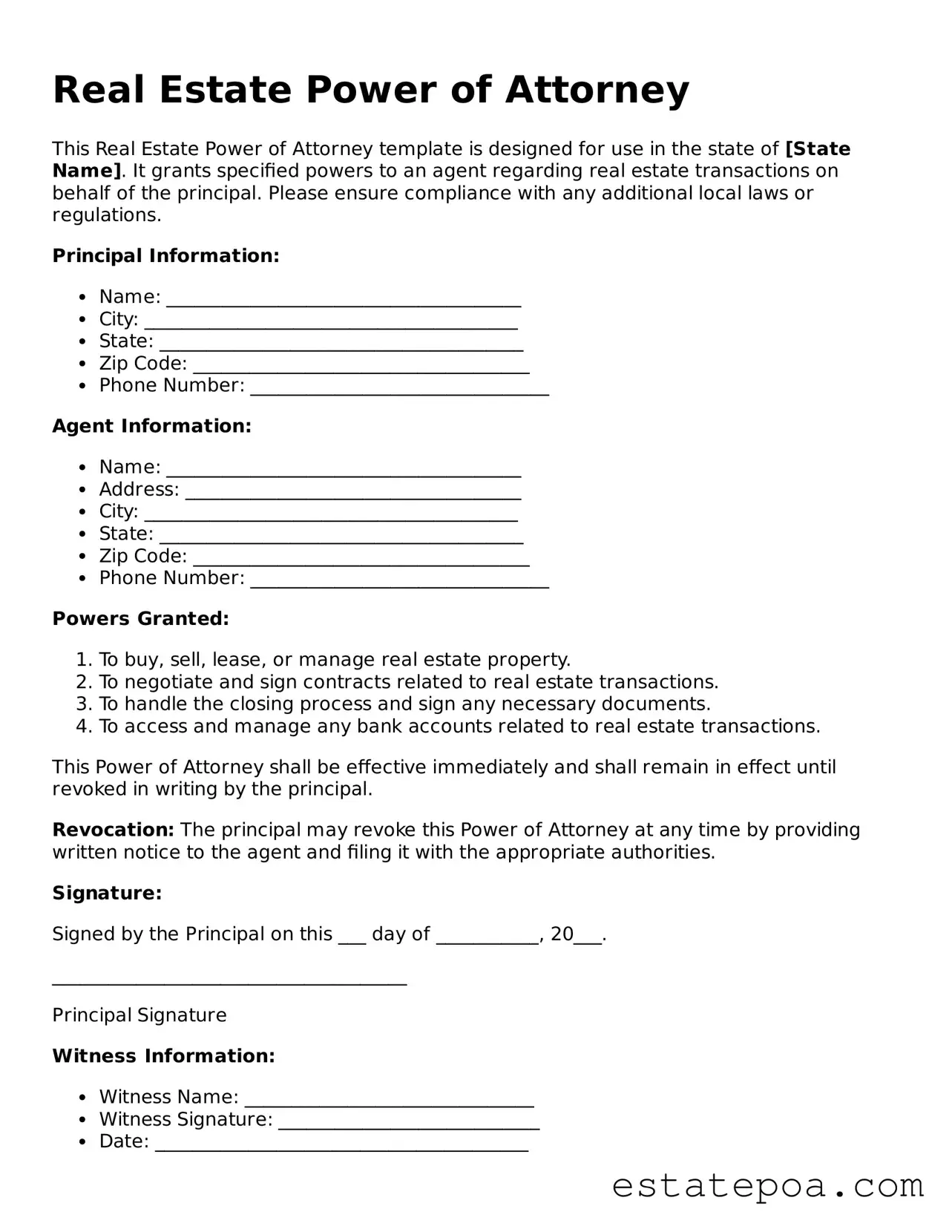What is a Real Estate Power of Attorney?
A Real Estate Power of Attorney is a legal document that allows one person (the agent) to act on behalf of another person (the principal) in real estate transactions. This can include buying, selling, or managing property. It grants the agent the authority to make decisions and sign documents related to real estate on the principal's behalf.
Why would someone need a Real Estate Power of Attorney?
There are several reasons why someone might choose to create a Real Estate Power of Attorney:
-
If the principal is unable to be present for a transaction due to travel, health issues, or other commitments.
-
To ensure that real estate matters are handled promptly and efficiently, especially in urgent situations.
-
To appoint a trusted individual to manage property affairs, particularly for those who may not be familiar with the process.
Who can be appointed as an agent in a Real Estate Power of Attorney?
Almost anyone can be appointed as an agent, as long as they are of legal age and mentally competent. Common choices include family members, friends, or professional agents such as real estate brokers or attorneys. It is crucial to choose someone trustworthy and capable of making sound decisions regarding real estate matters.
What powers does the agent have under this document?
The powers granted to the agent can vary based on the specific language of the document. Generally, the agent may be authorized to:
-
Buy or sell real estate on behalf of the principal.
-
Manage property, including collecting rent or paying bills.
-
Sign contracts and legal documents related to real estate transactions.
-
Make decisions regarding repairs and maintenance of the property.
Is a Real Estate Power of Attorney permanent?
No, a Real Estate Power of Attorney is not necessarily permanent. It can be set up to be effective immediately or only when the principal becomes incapacitated. Additionally, the principal can revoke the power at any time, as long as they are mentally competent to do so.
Do I need to have the Real Estate Power of Attorney notarized?
Yes, most states require that a Real Estate Power of Attorney be notarized to be legally binding. This helps to verify the identities of the parties involved and ensures that the document is executed properly. Some states may also require witnesses to sign the document.
Can a Real Estate Power of Attorney be used for other types of transactions?
While a Real Estate Power of Attorney is specifically designed for real estate matters, it can sometimes be combined with other powers of attorney that cover different areas. However, if you need to address other financial or legal matters, it may be best to create a separate document tailored to those needs.
What happens if the principal becomes incapacitated?
If the principal becomes incapacitated, the Real Estate Power of Attorney can still remain in effect if it was designed to be durable. A durable power of attorney allows the agent to continue acting on behalf of the principal even if they can no longer make decisions themselves. It is important to specify this in the document if that is the intention.
How can I revoke a Real Estate Power of Attorney?
To revoke a Real Estate Power of Attorney, the principal must create a written notice of revocation. This notice should be signed and dated, and it is advisable to notify the agent and any relevant third parties, such as banks or real estate professionals, about the revocation. It is also wise to destroy any copies of the original document to prevent confusion.
Real Estate Power of Attorney forms can be obtained from various sources, including legal websites, local real estate offices, or attorneys specializing in real estate law. It is essential to ensure that the form complies with state laws, as requirements can vary by location.
